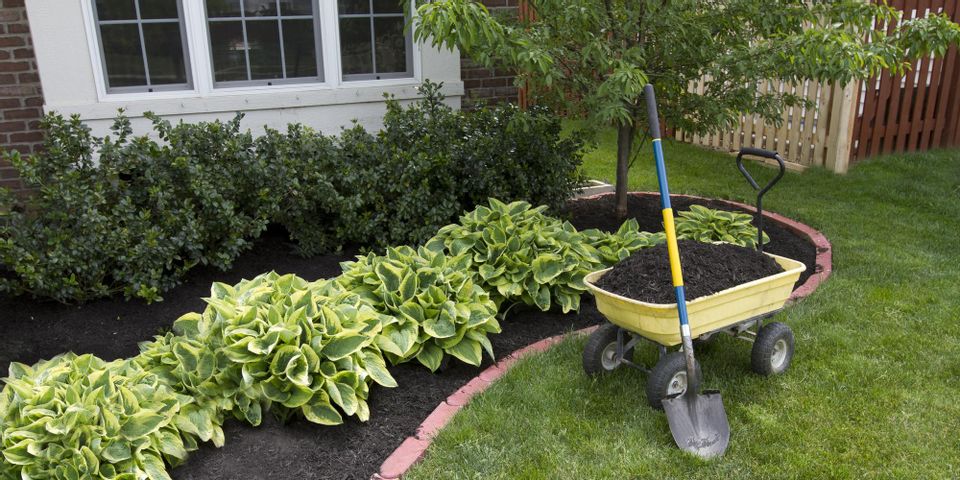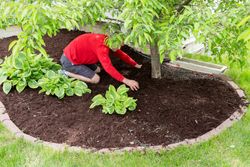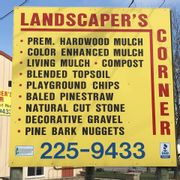
There are many advantages when using mulch in your garden. Besides making garden beds look more attractive, it also helps your soil retain moisture, reduces weeds, and prevents erosion. Help your garden thrive by following the do’s and don'ts of mulching below.
Do:
Remove old mulch before adding more.
Over time, natural mulch layers will slowly decompose, requiring a fresh layer. While you may be tempted to add new mulch on top of the old, doing so can cause the existing layer to stop decomposing, creating a barrier between water and beneficial nutrients that can kill your plants. To be safe, remove as much of the previous material as you can before applying a fresh layer.
Use mulch artfully.
 In addition to supporting the health of your plants and trees, mulch can add color and texture, enhancing the overall visual appeal of your yard.
In addition to supporting the health of your plants and trees, mulch can add color and texture, enhancing the overall visual appeal of your yard.
Select hues and materials that contrast with the aesthetics of your landscaping, such as stonework, fencing, and even the color of your home. Keep in mind how the placement and color will impact plants in specific areas. For instance, darker colors will absorb more heat, which may hurt plants in areas with high sun exposure.
Don't:
Neglect trees and shrubs.
Mulching trees, especially younger trees and saplings, will help protect the trunk from moisture loss, root exposure, and extreme temperature fluctuations that can harm underdeveloped root systems, potentially killing juvenile trees.
Apply to the perimeter of your trees and shrubs, leaving the soil exposed in a small circle just at the base. Avoid piling it directly against the base of your trees and shrubs, as this allows moisture buildup, which can encourage pests, disease, and decay.
Use too much or too little.
When applying to your plants, the goal is to provide adequate coverage while still allowing plants to receive water and nutrients. Too little mulch will leave bare spots that can cause soil erosion, exposing and damaging sensitive root systems. Too much can prevent water from reaching the roots of your plants and attract pests, such as termites.
A three-inch layer is ideal for plant life, while three to four inches is beneficial for trees and shrubs.
For help enhancing the natural beauty of your yard, contact the professionals at Landscaper's Corner in Lexington, KY. For over 13 years, their skilled team has offered landscaping services in addition to a variety of high-quality garden supplies, including mulch, stone, and rock options. Contact them today at (859) 225-9433 for an estimate, or visit them online for more information about their products and services.
About the Business
Have a question? Ask the experts!
Send your question

